A New International Economic Order
Some notes from Shanghai, Nairobi, Tegucigalpa, Tunis & Havana
Greetings from Shanghai!
This (long) post will encompass some brief comments and updates from my recent work, and will be followed by more detailed notes in the next few weeks. First, I spent the last few days in Shanghai, China lecturing at the School of International Relations and Public Affairs at Fudan University in Shanghai (July 8-23). The program is aimed for Ph.D. students, post-docs, and early career professionals who are entering academia and public policy government positions. This year’s theme is “Public Indebtedness and the Future of Human Development.” I spent close to six hours (split over two days) presenting “Global South Debt & Development: A Strategic Repositioning in a Multipolar World of Peace & Sustainable Prosperity,” and engaging in the most thoughtful discussions with 120 of the sharpest young minds in China. The future of the Global South is brighter. I will write more about this soon. Next, I will briefly highlight some recent events in Nairobi, Tegucigalpa, Tunis, and Havana.
Kenyans reject the 2024 Finance Bill
Nairobi has seen major protests over the last few weeks as a reaction to the withdrawn 2024 Finance Bill that was going to impose higher taxes and severe austerity measures while expending budget for government officials and their spouses. I published this op-ed in The Guardian explaining the role of the IMF in Kenya’s structural debt Crisis. When you read this op-ed you might find the following charts useful in reference to Kenya’s structural deficiencies and how they lead to currency depreciation and an exponential increase in external debt (these slides are from a recent presentation at The University of Nairobi). And yes, corruption does matter, of course, but it is not the root cause of Kenya’s debt crisis. The first slide shows Kenya’s exports, the second is Kenya’s imports (so you can eyeball the composition of each), and the 3rd and 4th slides are labeled below).
I would also encourage you to read this excellent op-ed in The Guardian by Nanjala Nyabola as well as this joint civil society statement organized by Tax Justice Network Africa and this solidarity statement from AFRODAD. Finally, below is the link to a recent interview I did with CGTN-Africa about the 2024 Finance Bill.
Honduras is Fighting for Tax Justice
It was an honor to join the Government of President Xiomara Castro who convened a special summit of the Community of Latin American and Caribbean States (CELAC) in Tegucigalpa, Honduras (June 27-29), to commemorate the 2009 coup, celebrate the enduring resistance of the Honduran people, and strengthen the hemispheric coalition in defense of popular sovereignty. Honduras is not only fighting to restore and strengthen its democracy, peace, and security, but also to rid itself of some of the most abusive rules of the global economic system.
One of the boldest moves by President Xiomara Castro’s administration was withdrawing from the International Centre for Settlement of Investment Disputes (ICSID). ICSID and other so-called international arbitration platforms are court-like private venues that multinational corporations use to force sovereign states (mostly in the Global South) to pay punitive compensations for the hypothetical unrealized profits they they claim to have lost because of public policies that advance the welfare of consumers, workers or the environment. In Latin America alone, more than $30 billion has been transferred from countries to corporations through these courts; not to mention the millions of lives negatively affected by governments not acting to serve the interest of their people when they fear the wrath of these undemocratic “courts” of neocolonial abuse. To learn more about the Investor-State Dispute Settlement (ISDS) threat to sovereignty and prosperity in the Global South, you can read this, this, and this. What Honduras is doing is nothing short of establishing a pathway for the rest of the Global South to finally decolonize the global economic architecture.
Honduras has also introduced a draft Tax Justice Law that seeks to tackle tax evasion, harmful tax incentives, and banking secrecy, but it has faced strong opposition from right-wing groups who are keen to maintain the tax advantages they currently enjoy. While in Tegucigalpa, I joined H.E. Mr. Marlon Ochoa (Minster of Finance of Honduras) and my colleagues Attiya Waris, Maria Luisa Ortega, Jorge Coronado, and Matti Kohonen on a panel discussion titled “Tax Justice: The Fight against Transnational Oligarchy.” I delivered two key messages on that panel.
First, while we continue to fight for a more just international tax system that goes after speculators, polluters, and the oligarchs, we must not lose sight of the importance of regulation that targets the roots of this abusive, extractive, and unjust system. In other words, we must both Tax & Regulate the unjust system out of existence, rather than just tax bad behavior for the purpose of collecting tax revenues to fund good programs.
Second, we must move away from a system of fiscal “redistribution” to a system of “pre-distribution.” In other words, a structural system redesign that replaces the engines of inequality, pollution, speculation, and socioeconomic exclusion, with engines that produce - by design - more just, equitable, and sustainable outcomes for all.
The visit included a closed-door conversation with senior officials in the Honduran government including several ministers and vice-minsters, and concluded with a dinner and a meeting at the Presidential Palace with President Xiomara Castro and the first gentleman, former President, José Manuel Zelaya.




Tunis: African CSOs and Decolonizing International Taxation
I had the immense pleasure to speak at a gathering of African civil society organizations from 26 different countries to discuss“The Role of African Countries in Defining Global Tax Rules,” co-hosted in Tunis by the Observatory of the Tunisian Economy (OTE) and Tax Justice Network Africa. The purpose of the workshop was to further empower, inform, and mobilize Africans to remain united behind the a UN Framework Convention on International Tax Cooperation. My intervention was titled “A Geo-Strategic African Repositioning: International Taxation and Economic Architecture in a New Multipolar World,” and was made in my personal capacity rather than in my capacity as a member of the Expert Group of the Global Solidarity Levies Task Force. You can watch the recording (in Arabic) here. You can also read my initial blog from Accra when the historic vote took place last November “Decolonizing the International Tax System.” The consensus among African CSOs is that we need to remain united behind the UN Tax Convention process, to insist on rights-based and gender transformative tax system, and to ensure that the new global tax rules are consistent with the necessary transformation and policy action that we need for the new global rules on climate, trade, investment, and finance. To learn more about the UN Tax Convention process you can read this, this, this, and this, and read this excellent infographic produced by OTE.
Food Sovereignty in Tunisia
Did you know that "Food Security" is a dangerous neocolonial technical concept designed to force the Global South into debt traps, destroy our agriculture & ecology, and increase our dependence on the Global North? While in Tunis, I had the pleasure of speaking at an online event hosted by Green MENA Network under the theme of "Food Sovereignty: Who's Food Are We Producing in Tunisia?"(June 24, 2024). You can watch my intervention here. I highlighted the difference between the concepts of “food security” and “food sovereignty” and put both of them in the historical context of agricultural subsidies in the Global North, especially the EU’s Common Agricultural Policy (CAP) and its impact on grains production in Tunisia, as well as CAP’s negative ecological impact in the Global South.
Cuba: NIEO 50th Anniversary
This year, I celebrated International Workers’ Day in Havana, Cuba, where the New International Economic Order 50th Anniversary Congress was held. You can read the original NIEO document from United Nations here (May 1, 1974). The event was hosted by the Cuban government and facilitated by Progressive International, and included a large number of senior officials, diplomats, experts, and CSO leaders from around the world. I made two interventions at the Congress and expressed my solidarity with the people of Cuba for their resilience in surviving more than six decades of illegal blockade. The first intervention focused on highlighting the colonial and post-colonial economic traps that must be structurally removed to allow for the birth of a New International Economic Order. The second intervention (which I will post a longer blog about) was about the geopolitical opportunity that the Global South has to reposition itself away from the the colonial economic role that was imposed on it by the Global North. I will not say more here, but you can listen to a brief description of it in the second half of this episode of the EQUALS podcast. Finally, since we are talking about NIEO, I cannot recommend this 1975 report enough. What Now: Another Development, was published by the Dag Hammarskjöld Foundation in 1975, and was presented in a special session of the United Nations. This is probably the most important economic development report that you’ve never heard of. Highly recommended. I will write more about it soon, but you can get a headstart by reading it yourself. Everything that needed to be done in the last 50 years is carefully articulated in this document.
EQUALS: Decolonizing to Decarbonize
I wanted to bring to your attention this EQUALS podcast I recorded with Oxfam’s Max Lawson and Nafkote Dabi: Decarbonizing to Decolonize. Take a listen.
A Pan-African Vision for a Just Transition
Finally, I had the opportunity to speak at second annual forum of the Transition Institute 1.5 “African Perspective on Climate Change,” which was convened by Mines Paris PSL on May 29, 2024. My speech was titled “A Pan-African Vision for Just Transition: We cannot decarbonize a system that hasn’t been decolonized yet.” You can watch the recording below, and you can watch the entire event here.
And to close, let me express my sincerest apologies for the long absence. It’s been a very hectic period. I will strive to post again soon.
Thank you, 谢谢, Asanteni Sana, شكرًا, Gracias!
Fadhel Kaboub is an associate professor of economics at Denison University (on leave), and the president of the Global Institute for Sustainable Prosperity. He is also a member of the Independent Expert Group on Just Transition and Development, an expert group member with the Global Solidarity Levies Task Force, a member of the Earth4All Economic Transformation Commission, a Steering Committee member with the Fossil Fuel Non-Proliferation Treaty Initiative, and serves as senior advisor with Power Shift Africa. He has recently served as Under-Secretary-General for Financing for Development at the Organisation of Southern Cooperation in Addis Ababa, Ethiopia. Dr. Kaboub is an expert on designing public policies to enhance monetary and economic sovereignty in the Global South, build resilience, and promote equitable and sustainable prosperity. His recent work focuses on Just Transition, Climate Finance, and transforming the global trade, finance, and investment architecture. His most recent co-authored publication is Just Transition: A Climate, Energy, and Development Vision for Africa (May 2023, published by the Independent Expert Group on Just Transition and Development). He has held a number of research affiliations with the Levy Economics Institute (NY), the John F. Kennedy School of Government at Harvard University (MA), the Economic Research Forum (Cairo), Power Shift Africa (Nairobi), and the Center for Strategic Studies on the Maghreb (Tunis). He is currently based in Nairobi, Kenya and is working on climate finance and development policies in Africa. You can follow him on Twitter @FadhelKaboub and you can read his Global South Perspectives on substack where he blogs regularly.






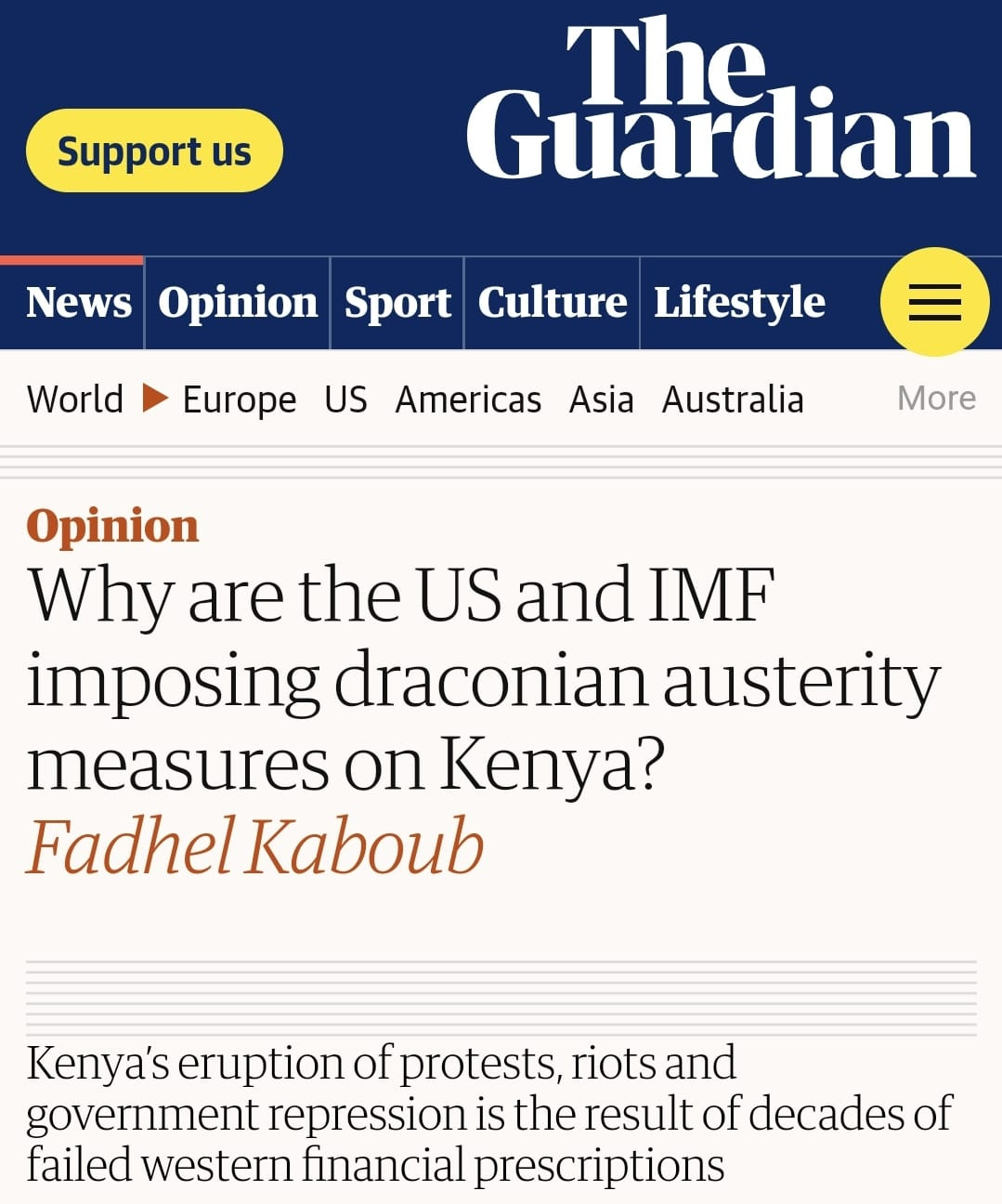


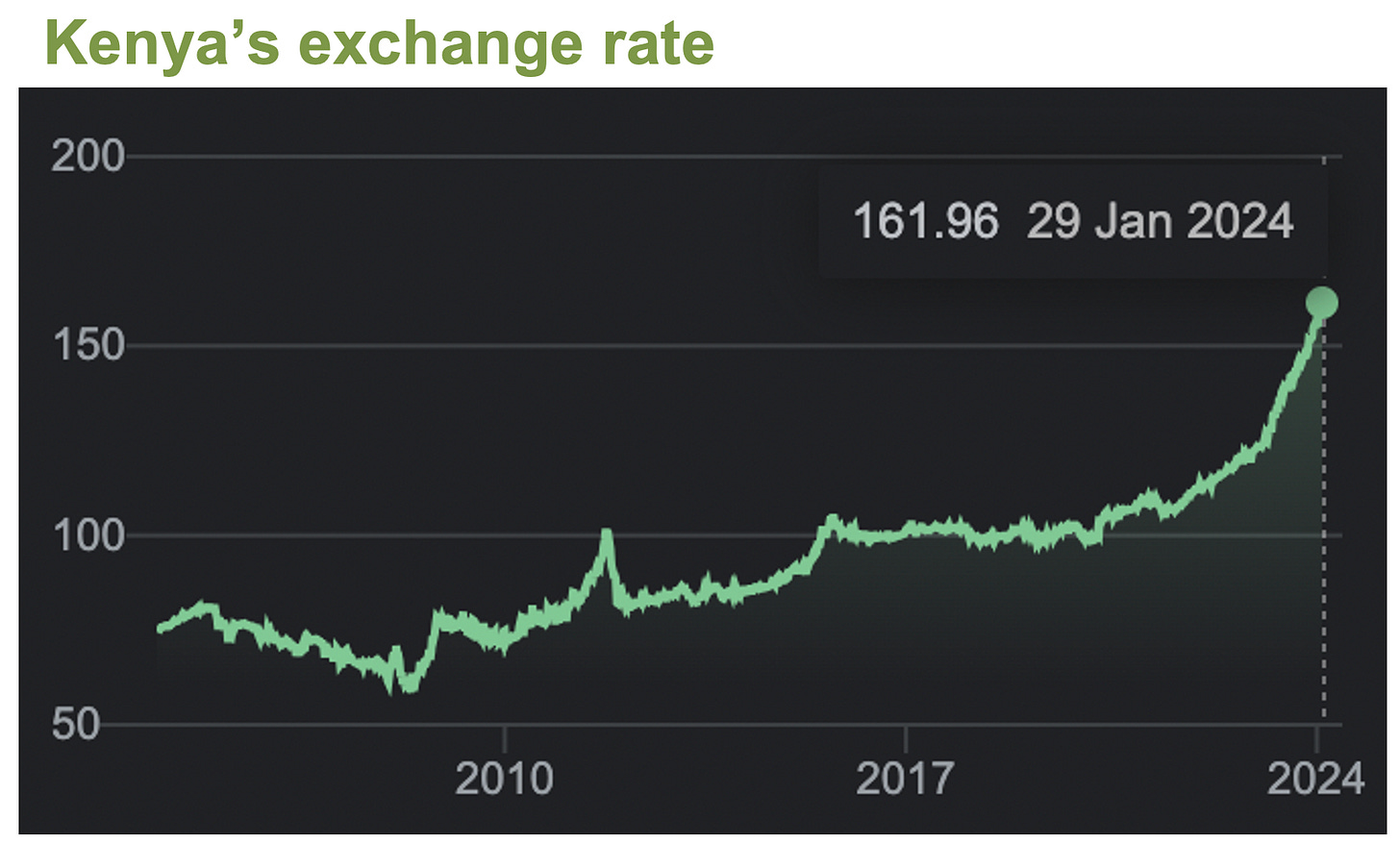


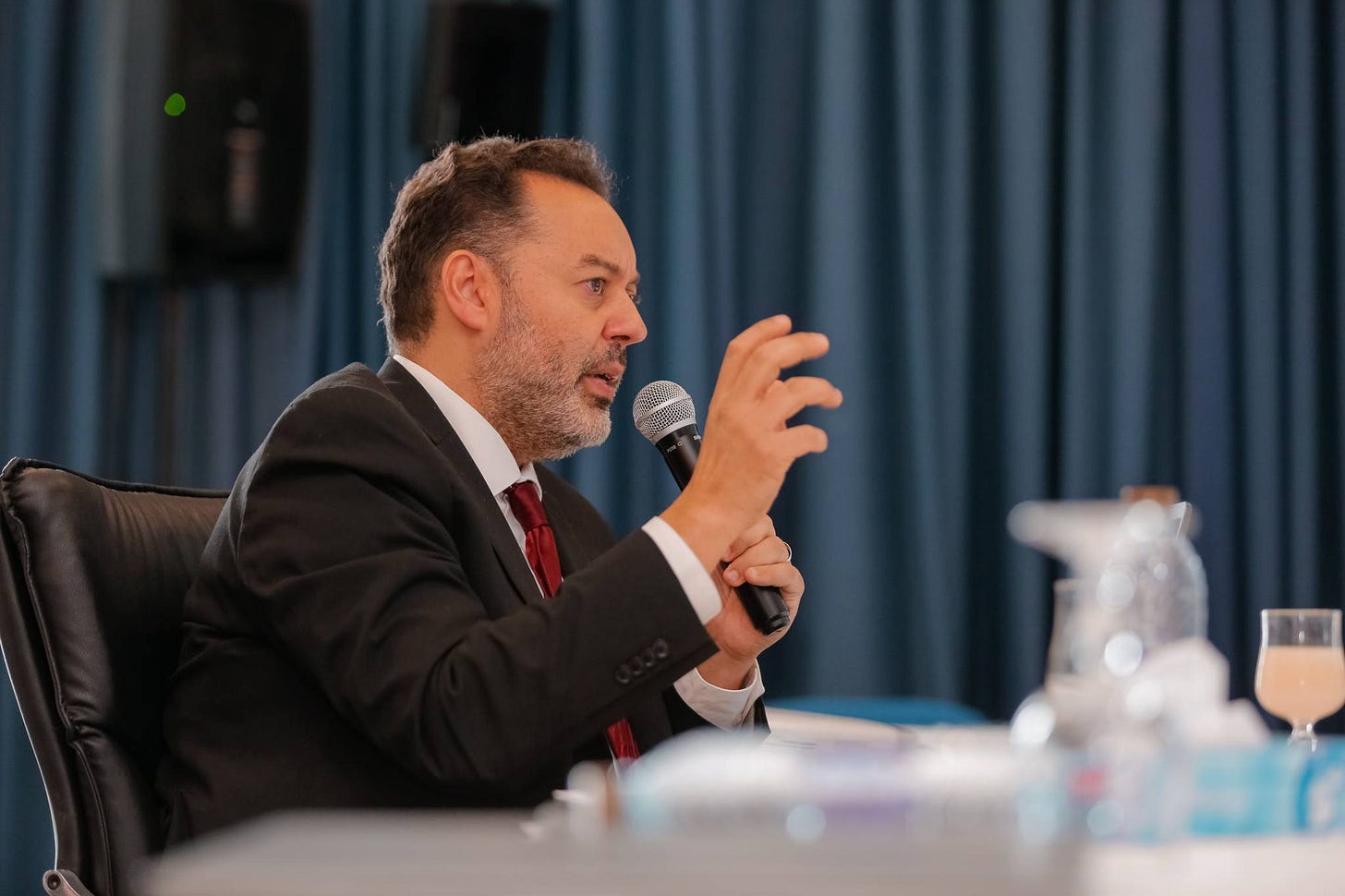


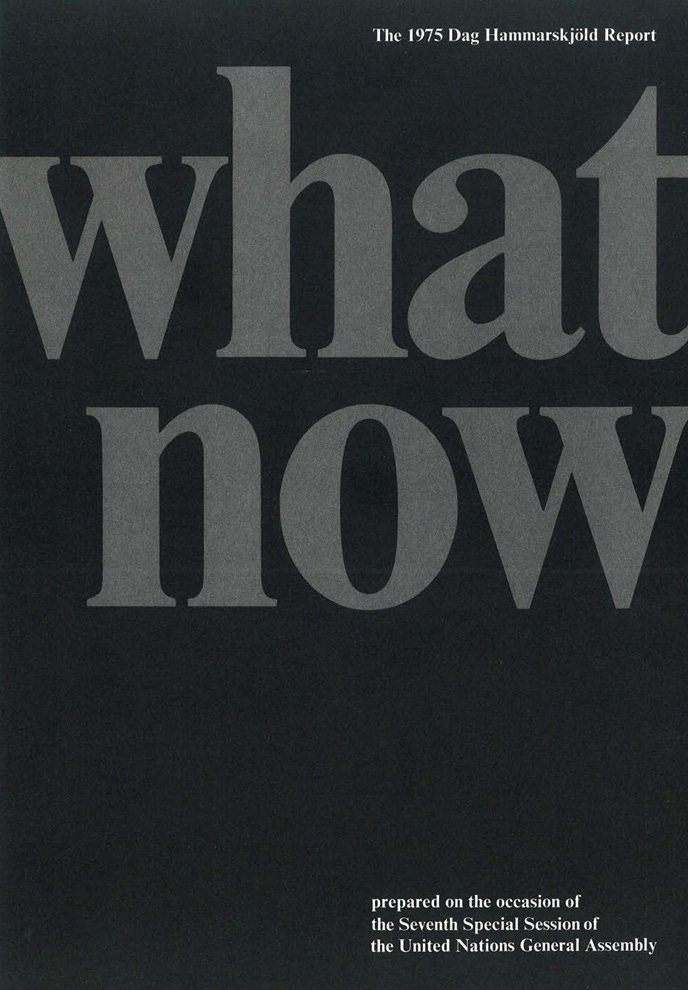
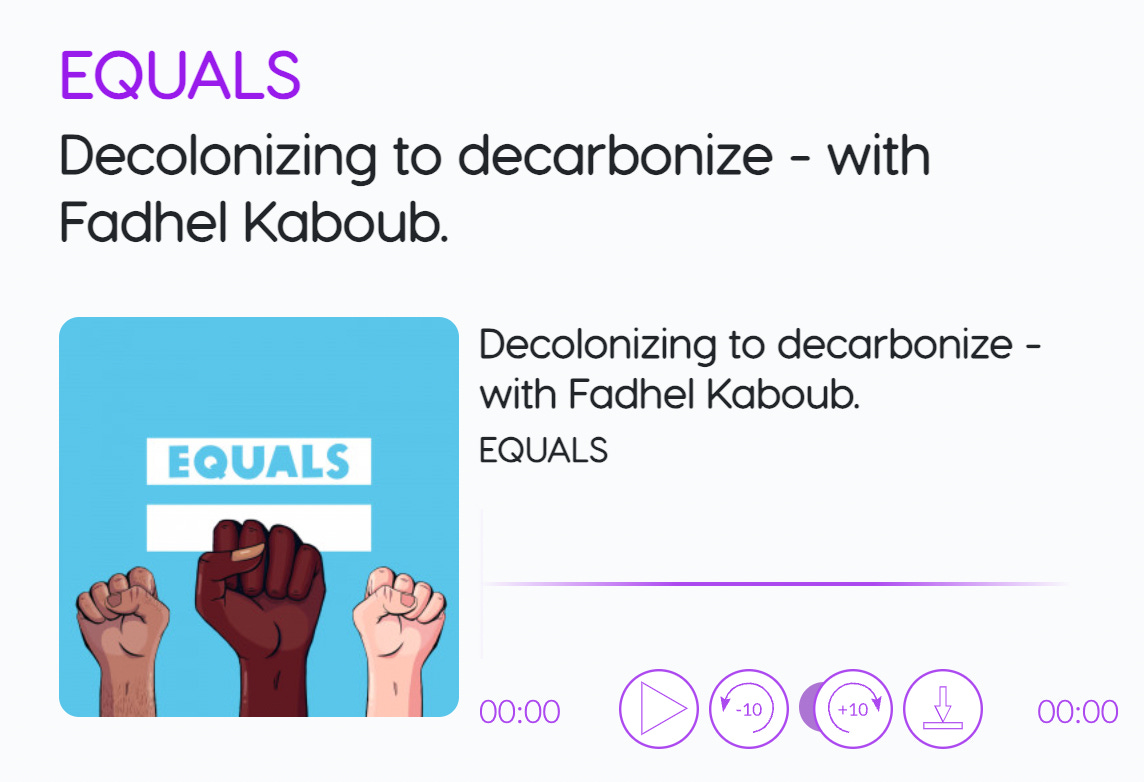

Great work and analysis
Keep up the good work Fadhel.